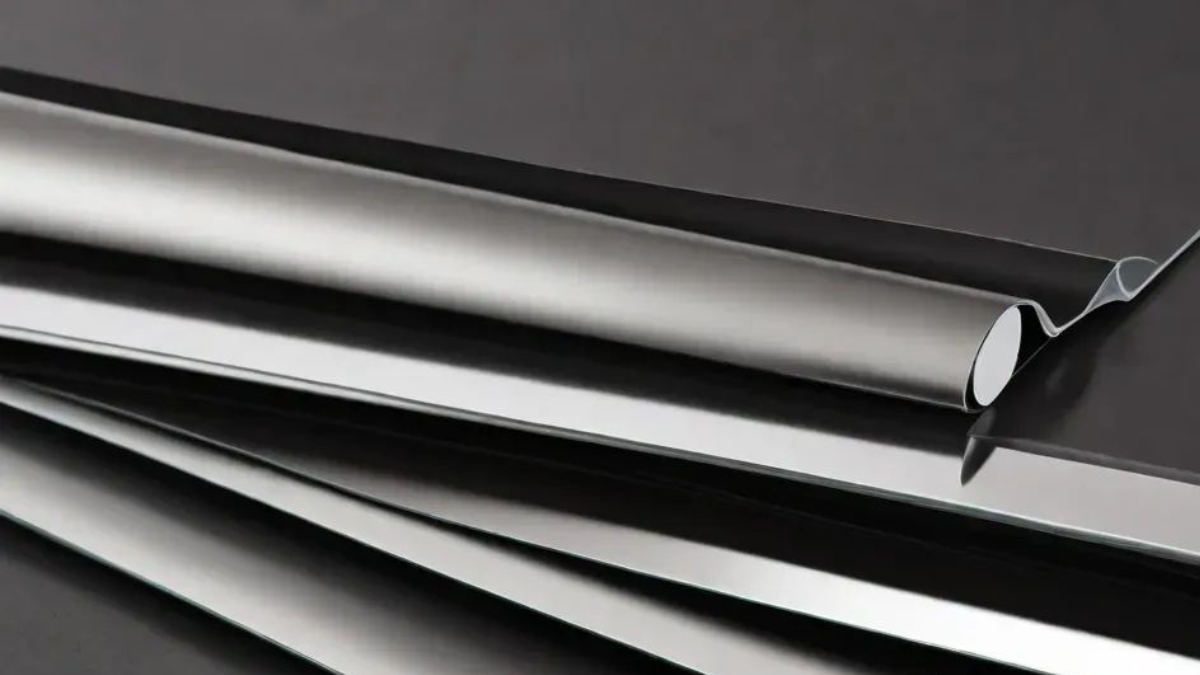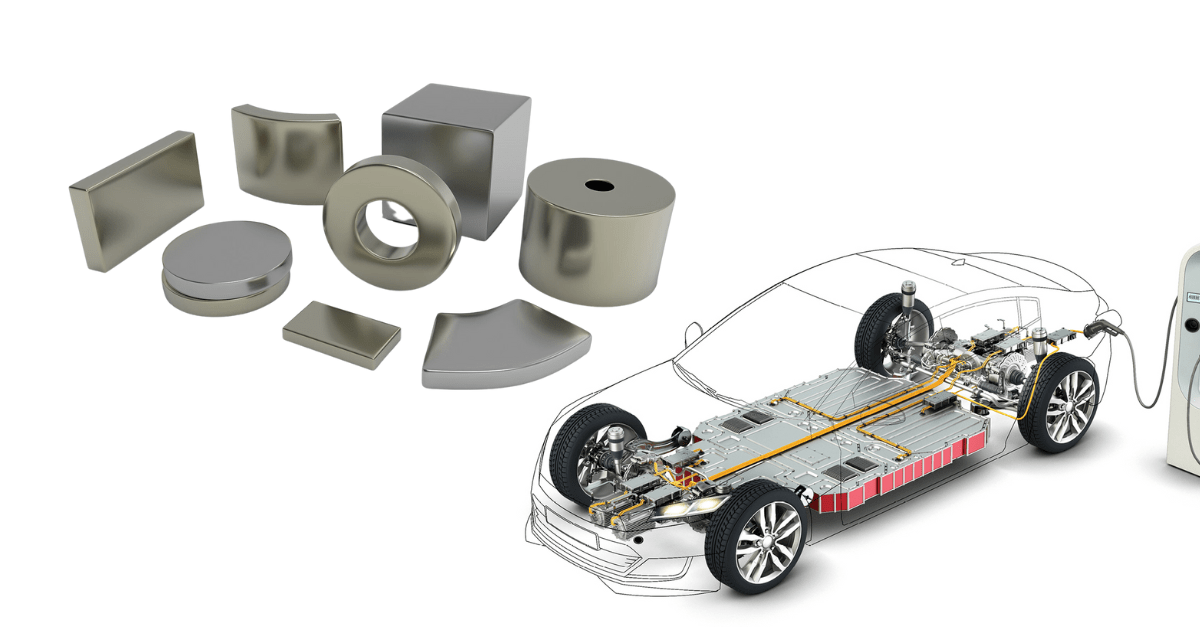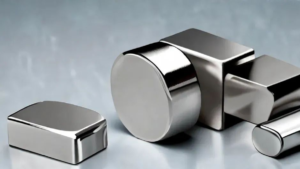

Electric motor vehicles (EMVs) have quickly gained in popularity as society moves toward sustainable transport solutions. Thanks to advanced technologies delivering impressive performance and efficiency. At the center of this revolution is neodymium magnet technology This blog post will discuss Neodymium Magnet application within EMV industry.
Neodymium Magnets (or Neodymium-iron-boron alloy magnets) are one of the strongest types of permanent magnets. It is made up of an alloy made of Neodymium-iron and Boron elements . It is used extensively across numerous applications such as electric motors, generators, wind turbines, MRI scanners and speakers.
Neodymium magnets are popularly utilized in electric motors for their ability to generate strong magnetic fields while remaining lightweight. Thus, making them suitable for electric vehicle usage that prioritizes fuel economy.
Neodymium magnets can also be found in generators and wind turbines to convert mechanical energy to electricity, while in MRI scanners neodymium magnets create a strong magnetic field which enables physicians to image human bodies more precisely.
Speakers utilize powerful neodymium magnets to produce an intense magnetic field which interacts with their coil and ultimately yields sound waves for sound production.
Neodymium Magnets are among the strongest permanent magnets currently available and made up of an alloy composed of neodymium, iron and boron (Nd2Fe14B), making them suitable for applications including electric vehicle motors.
Electric vehicles have quickly gained in popularity due to their lower environmental impact and operating costs, and Neodymium magnets play an integral part in turning electrical energy into mechanical energy that powers these cars.
Neodymium Magnets provide several distinct advantages in electric motors. Since these strong magnets generate significant torque (rotational force). This allows more of the electrical energy being converted to mechanical energy and increased motor efficiency.
Neodymium Magnets are lightweight, which makes them suitable for electric vehicle batteries that weigh heavily, adding only minimal additional weight to their vehicles. This factor should also be taken into consideration as electric vehicle battery weight can add substantially.
Third, Neodymium Magnets are corrosion resistant, meaning you don’t have to replace them as frequently. This reduces maintenance costs while increasing electric motor reliability.
Electric motor vehicles rely on electric motors powered by magnets to generate rotational force. Neodymium magnets, among the strongest permanent magnets available today, are frequently employed in electric motors to power them.
NdFeB magnets offer many advantages for use in electric motors. Their lightweight nature makes them more energy-efficient; additionally, these magnets can withstand higher temperatures compared to traditional magnets; making them suitable for vehicles which generate considerable heat.
Neodymium magnets’ primary benefit lies in their exceptional power; this makes them indispensable in electric motors which must generate significant torque to power vehicles. Such strong magnetic forces also find uses in industrial settings like wind turbines and MRI machines.
Neodymium magnets offer many benefits that will ensure that your electric motor operates more efficiently, including high levels of performance and long lasting strength. When searching for powerful and long-term magnets to use in electric motor vehicles, neodymium may be your perfect match.
Overall, Neodymium Magnets make for an outstanding selection for electric vehicle motors and axles. Their strength, light weight, corrosion-resistance properties and efficiency makes them more efficient and reliable than other forms of magnets.
Motor Propulsion: Neodymium magnets play an essential part in the propulsion systems of electric motor vehicles (EMVs). Used within electric motors that convert electrical energy to mechanical energy for driving purposes, Neodymium magnets generate powerful magnetic fields which interact with coils on motors to generate torque and rotational motion required to drive vehicles forwards; their exceptional magnetic strength ensures efficient motor operation that has allowed EMVs to achieve impressive acceleration and speed levels.
Energy storage and management are of critical importance in electric vehicle success, using Neodymium magnets in battery management systems can improve performance while prolonging their lives, as they regulate charging/discharging cycles to ensure optimal energy use while also protecting from overcharging/discharging of EMV batteries. By increasing battery management efficiency neodymium magnets contribute to longer driving ranges as well as reliable performance from EMVs.
Neo magnets find widespread application in electric motor vehicle power steering systems. Power steering assists drivers when driving at slower speeds or when parking their vehicles easily and smoothly, especially at parking maneuvers or during parking maneuvers. Neodymium magnets’ strong magnetic fields enable precise control over power steering mechanisms – improving responsiveness while improving maneuverability overall and creating an even more enjoyable driving experience for EMV owners.
Cutting-edge electric vehicle brake systems harness the power of neodymium magnets for effective braking solutions. Neodymium magnets are commonly found in electromagnetic brakes that use magnetic fields to create friction that slows down vehicles – these brakes offer efficient, durable, responsive control with precise control capabilities for both regenerative braking capabilities. Neodymium magnets enhance electric brake performance through shorter stopping distances and increased energy regeneration rates which ultimately contribute to improving overall efficiency while expanding EMV range.
Neodymium magnets play an integral part in supporting electric motor vehicles’ charging infrastructure, from charging stations and connectors employing them, through secure and reliable connections that speed up charging times while encouraging wider adoption of this alternative form of vehicle transport.
Electric vehicles often incorporate regenerative braking systems, which convert kinetic energy produced during braking into electrical energy. Neodymium magnets play a crucial role in these systems by enabling efficient energy conversion. The magnets help generate the necessary magnetic fields, allowing the conversion of mechanical energy into electrical energy, which is then stored in the vehicle’s battery.
Neodymium magnets are utilized in the construction of charging infrastructure for electric vehicles. They are used in electric vehicle supply equipment (EVSE), such as charging stations and connectors, to ensure efficient and secure connections between the vehicle and the charging infrastructure.
Neodymium magnets find application in various powertrain components of electric vehicles, such as electric power steering systems, electric compressors, and electric water pumps. These magnets enable compact and efficient designs of these components, enhancing overall vehicle performance.
Neodymium magnets have long been at the heart of the electric vehicle revolution, transforming performance, efficiency, and overall driving experience through their wide variety of uses in powering an EV motor or managing battery systems or providing precise steering control or efficient braking; their role cannot be understated in driving forward sustainable transportation solutions and their significance cannot be overemphasized; by harnessing this magnetic force we are fast tracking our transition toward greener transportation networks that support sustainable mobility ecosystems. Neodymium magnets have a significant marketplace on the internet. A variety of Neodymium magnet suppliers are available.

Magnetic sheeting is a flexible material that can be magnetized on one side and often has an adhesive or printable surface on the other. It

Magnets come in various shapes and sizes, each designed for specific uses. Understanding the different shapes of magnets, their properties, and their applications can help

Magnets are a fascinating part of our everyday lives, from the magnets on our fridge doors to the powerful magnets used in advanced technology. There
Our magnet experts will help you get exactly what you need – custom or stock – in record time with great quality at a very competitive price.
Ⓒ 2024 - All Rights Are Reserved